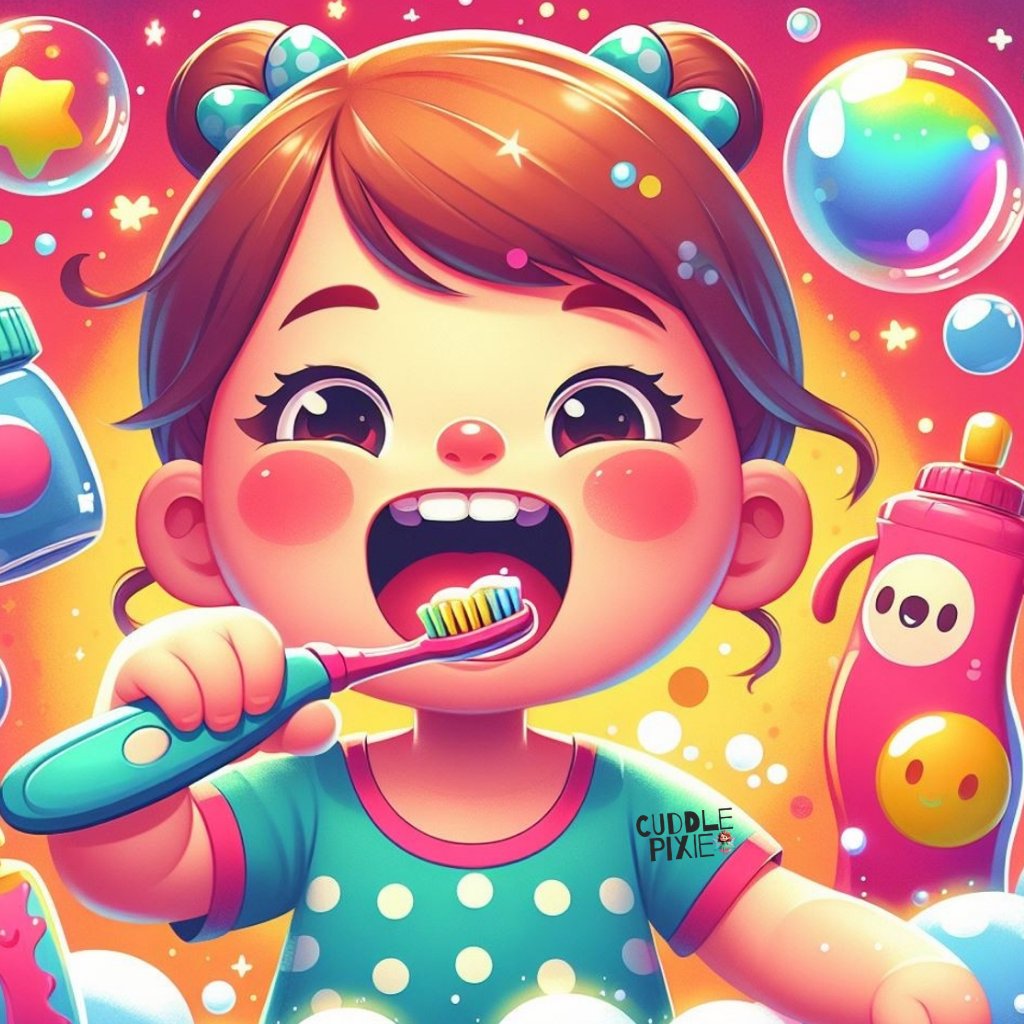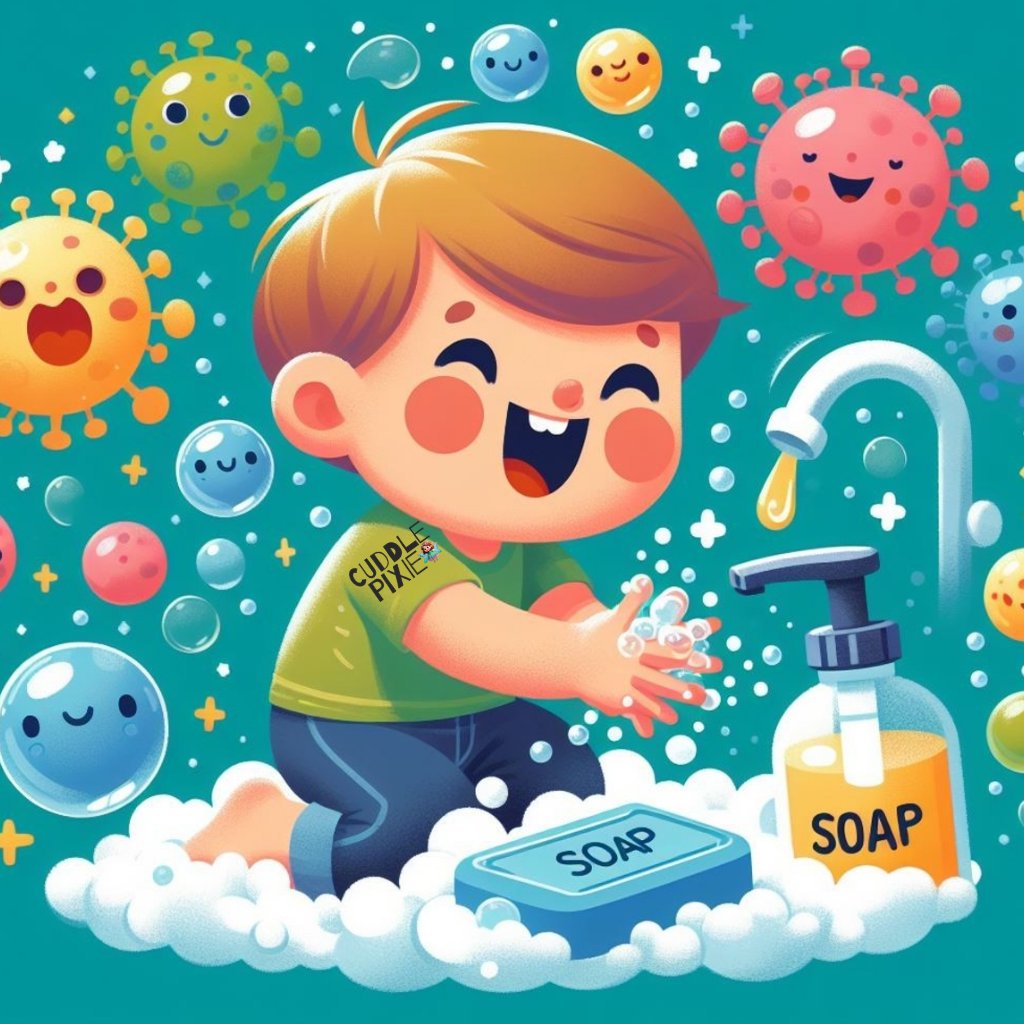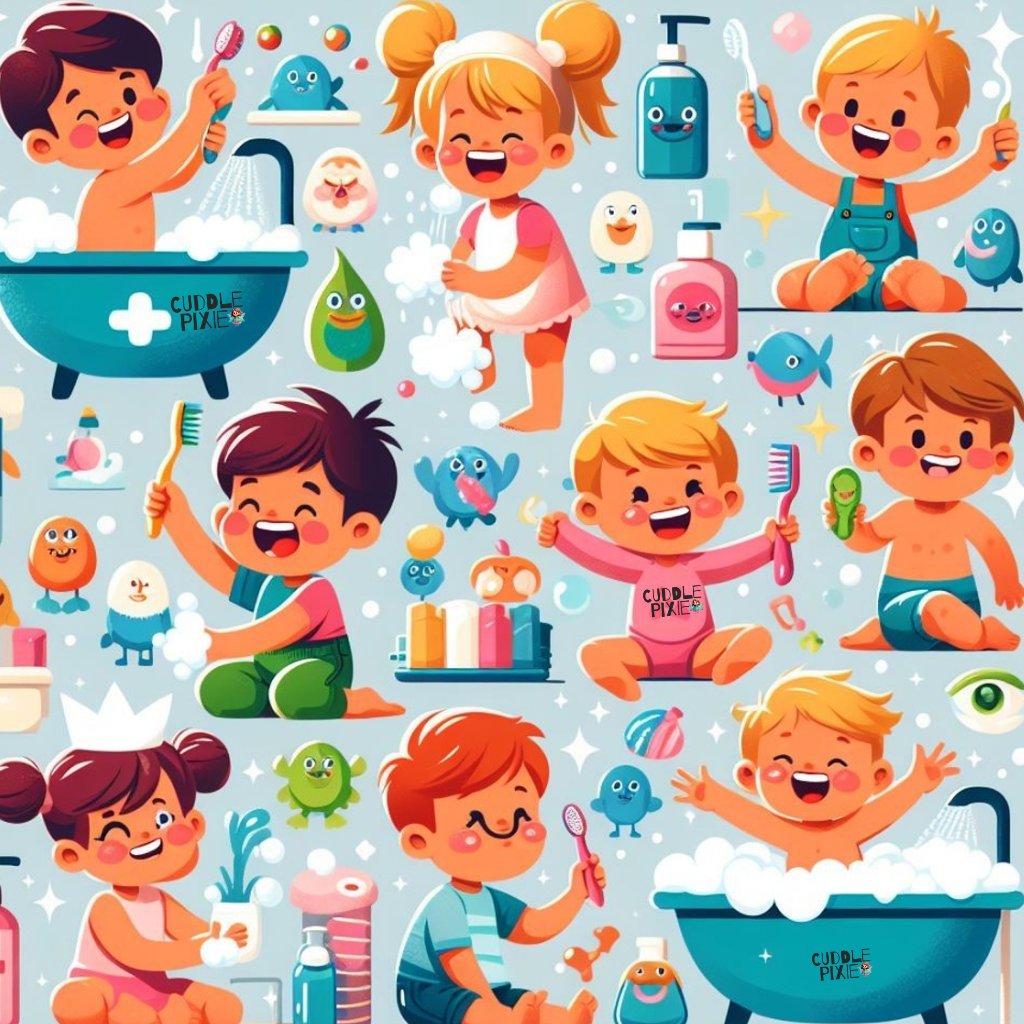Personal hygiene is a cornerstone of health and well-being, and it’s never too early to instill these habits in our little ones. Teaching toddlers about hygiene can be a delightful adventure filled with fun activities and engaging experiences. In this article, we’ll explore 10 creative ways to make hygiene education an exciting journey for your toddler.
In This Article
1. Singing Handwashing Songs
Handwashing is one of the simplest yet most effective ways to prevent the spread of germs. Make this essential task enjoyable by turning it into a musical experience! Sing catchy tunes like “Happy Birthday” or “ABCs” while scrubbing away those germs. You can even create a handwashing playlist featuring your toddler’s favorite songs.
Encourage your little one to scrub their hands for at least 20 seconds, the time it takes to sing the “Happy Birthday” song twice. Make it a family activity by singing along and dancing together. This interactive approach not only makes handwashing fun but also reinforces the importance of thorough cleaning.
2. Storytime with Hygiene Heroes
Children love stories, especially ones that feature brave heroes and exciting adventures. Incorporate hygiene into storytime by exploring tales of characters who save the day with their hygiene superpowers. Whether it’s a superhero who battles germs or a princess who loves brushing her teeth, these stories can captivate toddlers’ imaginations while teaching valuable lessons about cleanliness.
Look for children’s books that focus on hygiene-related themes, such as brushing teeth, washing hands, or taking baths. After reading, discuss the story with your toddler, highlighting the importance of each character’s hygiene habits. This interactive storytelling approach helps toddlers connect with the characters and understand the significance of personal hygiene.
3. Interactive Toothbrushing Games
Toothbrushing is a crucial part of dental hygiene, and it’s essential to make this daily routine enjoyable for toddlers. Turn toothbrushing into a playful game by using a timer and challenging your little one to brush their teeth for the entire duration of a song or story.

You can also make toothbrushing more exciting by letting your toddler choose their toothbrush and toothpaste flavors. There are many fun and colorful options available that can make this daily task feel like a special treat. Encourage your child to brush in front of a mirror, praising them for their efforts and teaching them proper brushing techniques.
4. Puppet Shows on Bath Time
Bath time can be a delightful experience filled with splashes, bubbles, and giggles. Enhance this daily ritual by creating a fun puppet show centered around bath time activities. Use colorful puppets to act out a playful bath time routine, complete with washing, rinsing, and drying.
As the puppets sing and dance their way to cleanliness, your toddler will be inspired to join in the fun. Encourage them to mimic the puppets’ actions, such as scrubbing their arms, splashing their feet, and washing their hair. This interactive puppet show can turn bath time into an exciting adventure that toddlers look forward to each day.
5. Dress-up as Hygiene Helpers
Imaginative play is a powerful tool for teaching toddlers about the world around them. Foster your child’s creativity by encouraging them to dress up as hygiene helpers, such as doctors, nurses, or dentists. Provide them with costumes, props, and toy tools to enhance their role-playing experience.
Toddlers can pretend to examine their stuffed animals’ teeth, give them a bath, or dress them in clean clothes. As they engage in these imaginative scenarios, talk to them about the importance of each hygiene task and how it contributes to their overall health. This hands-on approach allows toddlers to explore the concept of personal hygiene in a fun and interactive way.
6. Sticker Charts for Hygiene Habits
Reward systems can be a motivating way to encourage toddlers to practice good hygiene habits consistently. Create a hygiene sticker chart where your child can earn stickers for completing various hygiene tasks, such as brushing teeth, washing hands, and combing hair.
Place the sticker chart in a visible location, such as the bathroom or bedroom, to serve as a daily reminder of their hygiene goals. Celebrate their achievements with a special reward, such as a favorite snack or activity, when they reach certain milestones. This positive reinforcement approach can help toddlers develop lasting hygiene habits while making the learning process enjoyable.
7. DIY Hand Sanitizer Crafting
Hand sanitizers are convenient alternatives to soap and water, especially when you’re on the go. Teach toddlers about the importance of hand sanitizing by crafting your own safe and fragrant hand sanitizers together.

Mix aloe vera gel with a few drops of essential oils, such as lavender or tea tree oil, to create a moisturizing and aromatic hand sanitizer. Discuss when and how to use hand sanitizers, emphasizing their role in killing germs and preventing illnesses. This hands-on crafting activity not only teaches toddlers about hygiene but also encourages creativity and experimentation.
8. Creating a Hygiene Treasure Hunt
Make learning about hygiene exciting by organizing a scavenger hunt focused on hygiene-related items. Hide toothbrushes, soap, towels, and other hygiene essentials around the house, and invite your toddler to search for them.
As they find each item, discuss its purpose and how it contributes to personal cleanliness. You can also include fun clues or riddles to make the treasure hunt more challenging and engaging. This interactive activity encourages toddlers to explore their surroundings while learning about the importance of hygiene in a playful manner.
9. Role-playing Clean-up Time
Clean-up time is an excellent opportunity to teach toddlers about responsibility and organization. Engage in role-playing scenarios where your child cleans up their toys, books, and other belongings.
Provide them with mini brooms, dustpans, and cleaning cloths to make the task feel like a fun game. Encourage them to sort and organize their items, teaching them the importance of keeping their environment clean and tidy. This hands-on approach to clean-up time instills valuable life skills while reinforcing the concept of personal hygiene.
10. Bedtime Hygiene Stories
A peaceful bedtime routine is essential for a good night’s sleep and overall well-being. Wind down the day with calming stories that focus on nighttime hygiene rituals, such as brushing teeth, washing faces, and putting on cozy pajamas.
Choose books with relatable characters who engage in bedtime hygiene routines, allowing toddlers to connect with the story on a personal level. Follow along as the characters prepare for bed, discussing each step of the nighttime routine and its benefits. This soothing storytelling approach helps toddlers relax and unwind while learning about the importance of maintaining hygiene before sleep.
Final Thoughts
Teaching toddlers about personal hygiene can be a fun and rewarding experience for both parents and children. By incorporating these creative and engaging activities into their daily routines, you can inspire your little one to embrace healthy habits with enthusiasm and joy.
Remember, the key is to make hygiene education enjoyable and interactive, allowing toddlers to learn through play and exploration. So, let’s embark on this exciting journey of discovery together, making hygiene a delightful part of your child’s everyday life!
